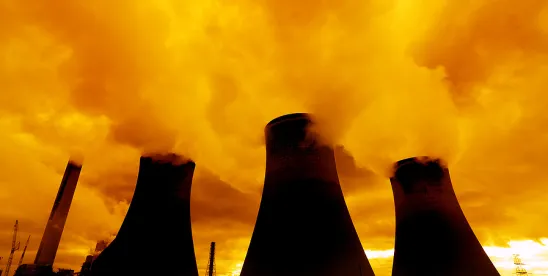Andrew Shaw, a partner in Bracewell Policy Resolution Group, shares insights on the future of nuclear energy under the new Trump administration.
Transcript:
There has been significant bipartisan progress on nuclear energy over the last several years, dating back to the first Trump administration through the Biden administration. In just the last 11 months, Congress has passed four major pieces of nuclear legislation. These bills include the Advanced Act, which incentivizes advanced reactors, along with three different bills intended to rebuild the domestic fuel cycle and transition the US away from a dependence on Russian uranium imports. These bills come on top of other nuclear legislation, including the Bipartisan Infrastructure Law, the Inflation Reduction Act and the Energy Act of 2020.
In this context, I expect bipartisan cooperation on nuclear energy to persist into the Trump administration. President Trump has touted the importance of deploying SMRs to meet electricity needs. Demonstrating that the US can deploy SMRs domestically and rebuild the domestic fuel cycle are consistent with President Trump’s broader energy security objectives. There will be a focus on DOE and NRC implementing recently enacted legislation such as the Advance Act and fuel cycle legislation. There will be a focus both in Congress and in the Trump administration on energy permitting reforms, including whether additional streamlining measures are necessary to support the deployment of advanced reactors.
On the international front, there is an overriding American interest in projecting US and Western influence in the international civilian nuclear energy sector to counter Chinese and Russian influence. The Trump administration will likely pursue bilateral engagement rather than multilateral forums to further US interests with respect to the civilian nuclear energy sector. In these bilateral engagements, a Trump administration is likely to particularly emphasize expanding export opportunities for US companies.
While bipartisan support for nuclear energy will persist, there are key questions as to how the Trump administration will address certain issues impacting the industry. For instance, next year will be a huge tax year with the expiration of individual tax cuts under the Trump tax bill, aka the 2017 Tax Cuts and Jobs Act. Some clean energy incentives under the Inflation Reduction Act may be targeted, and as such, the nuclear industry will fight strongly to protect the production tax credit for existing reactors, along with tech-neutral investment tax credit for clean electricity, which can support new reactors.
Another key question is how the Trump administration will address DOE’s loan authority, which can be leveraged to support the deployment of new nuclear projects. Notwithstanding developments in DC, there is strong momentum in the private sector to advance new nuclear generation. In just the last several months, Microsoft and Constellation announced a deal to restart the shuttered Three Mile Island nuclear plant to power some of Microsoft’s data centers. Amazon and Google have also unveiled deals to support the deployment of SMRs to power their respective data centers.
These private sector developments coupled with a favorable federal policy environment, bode well for the US nuclear industry in the years ahead.



 />i
/>i
